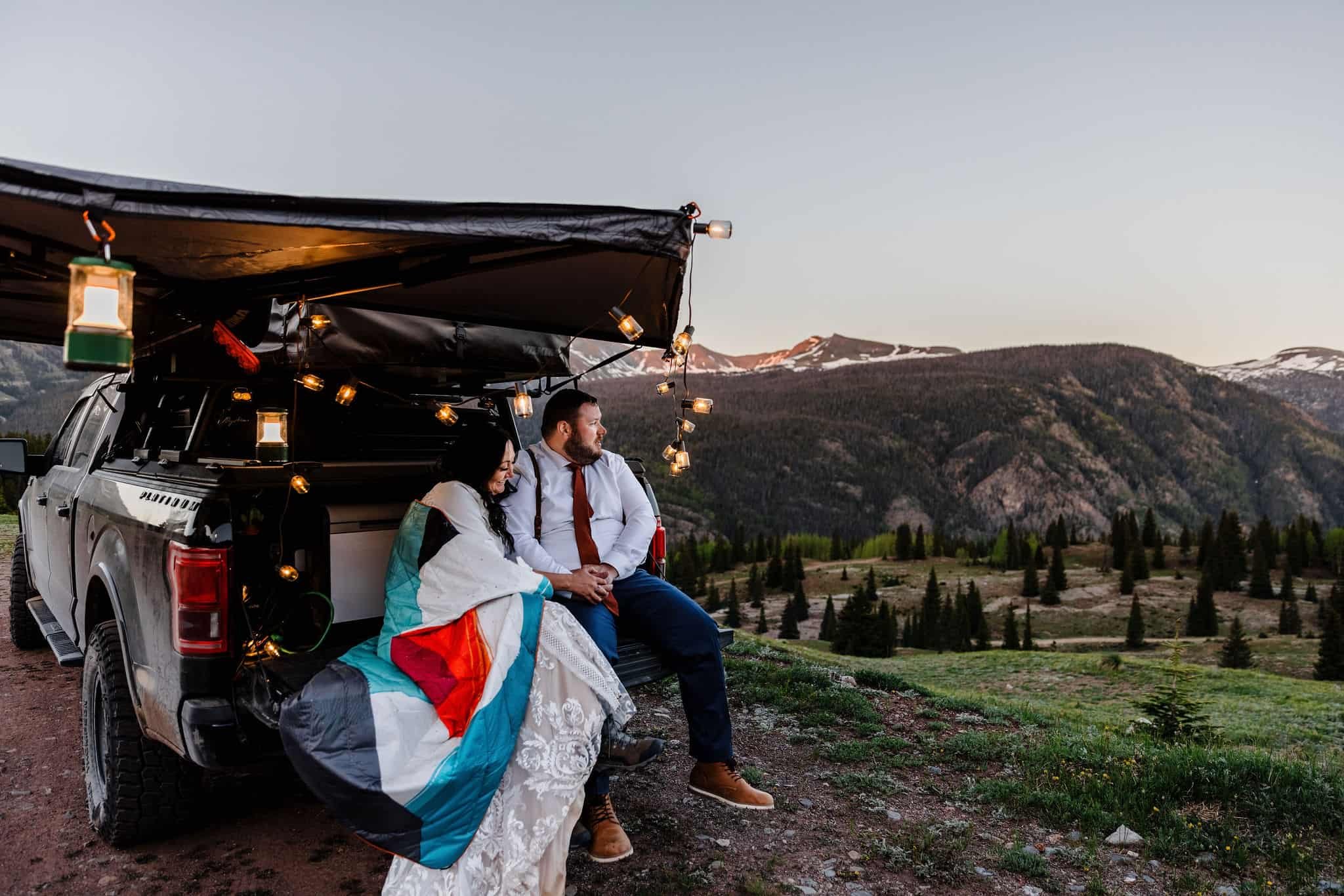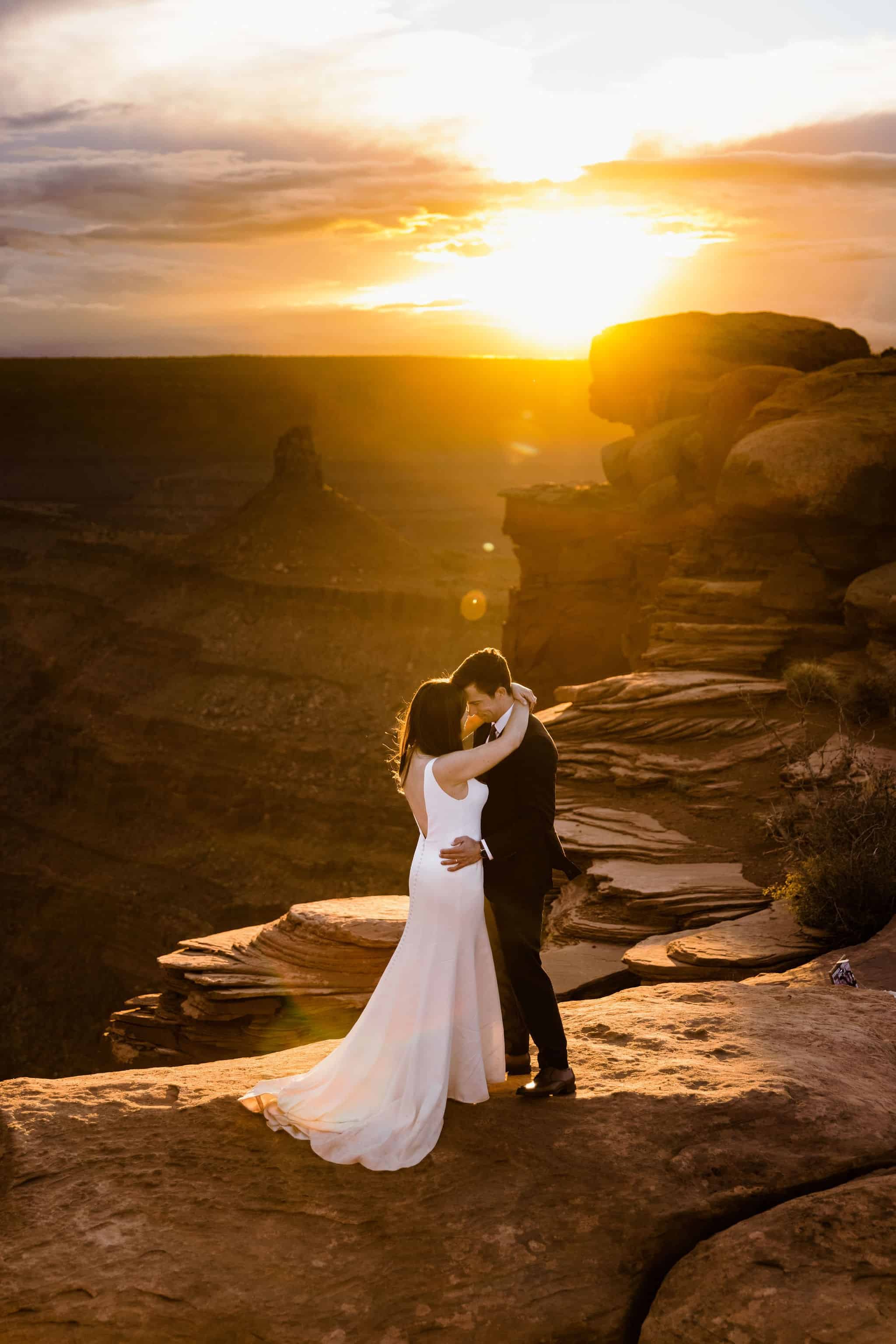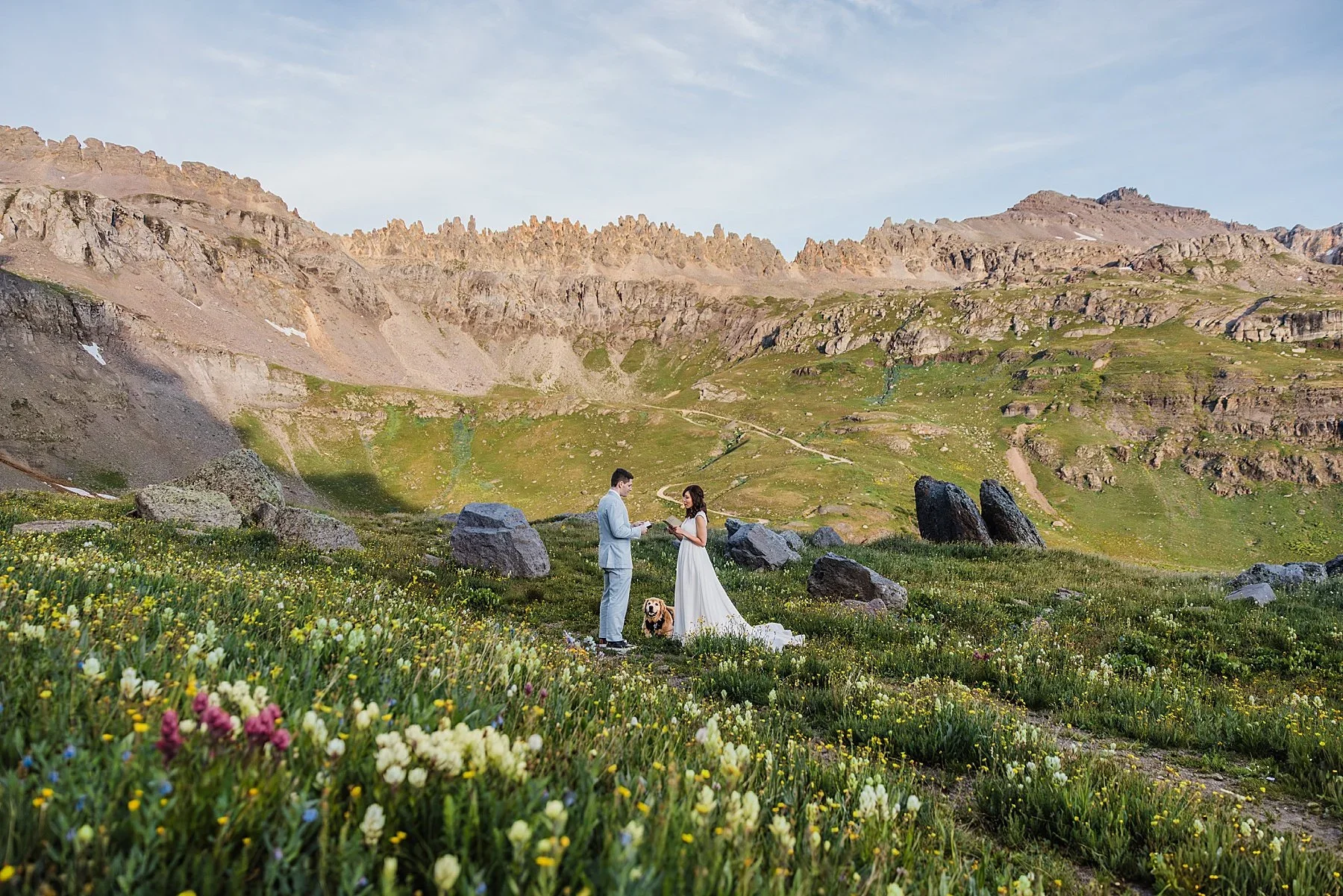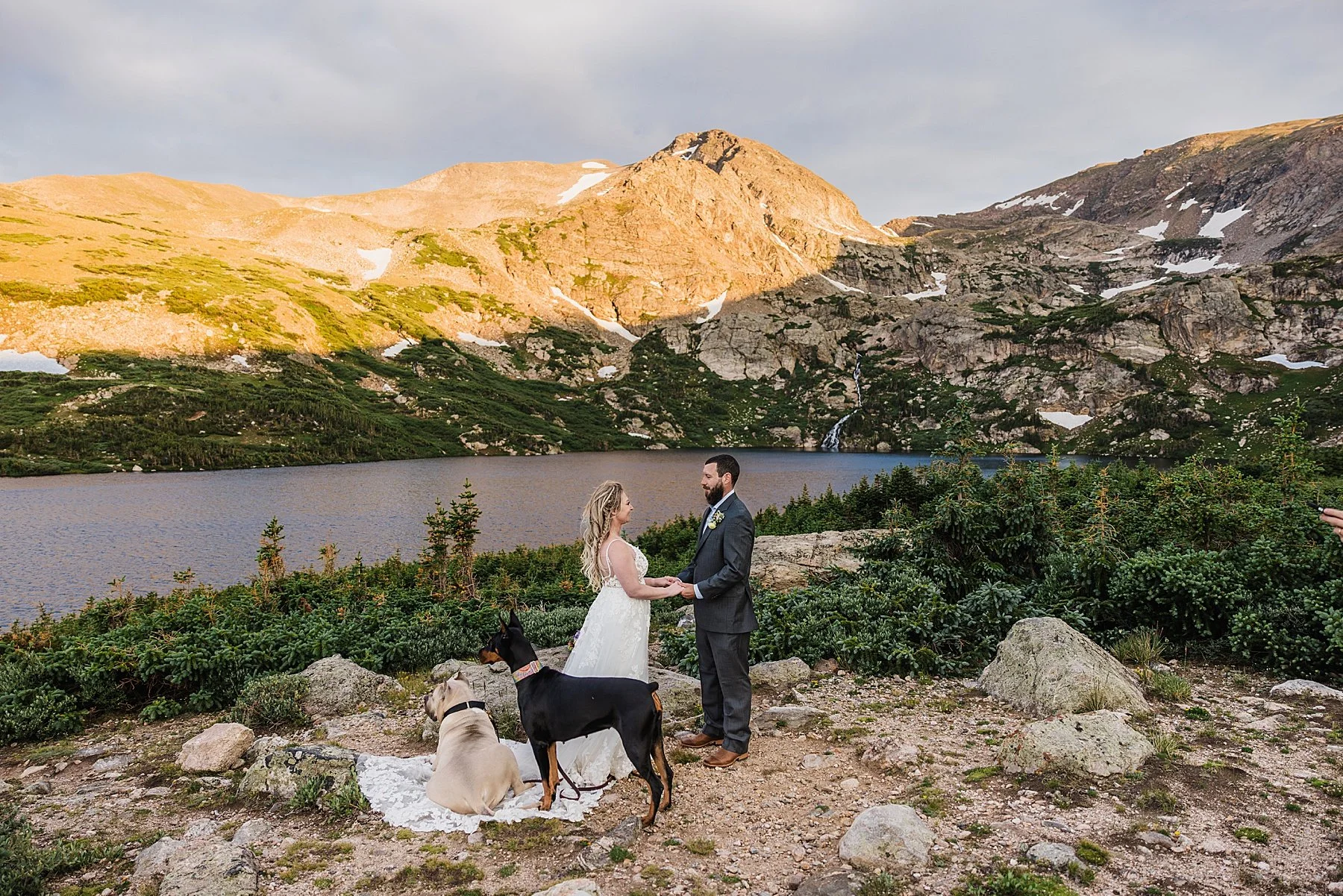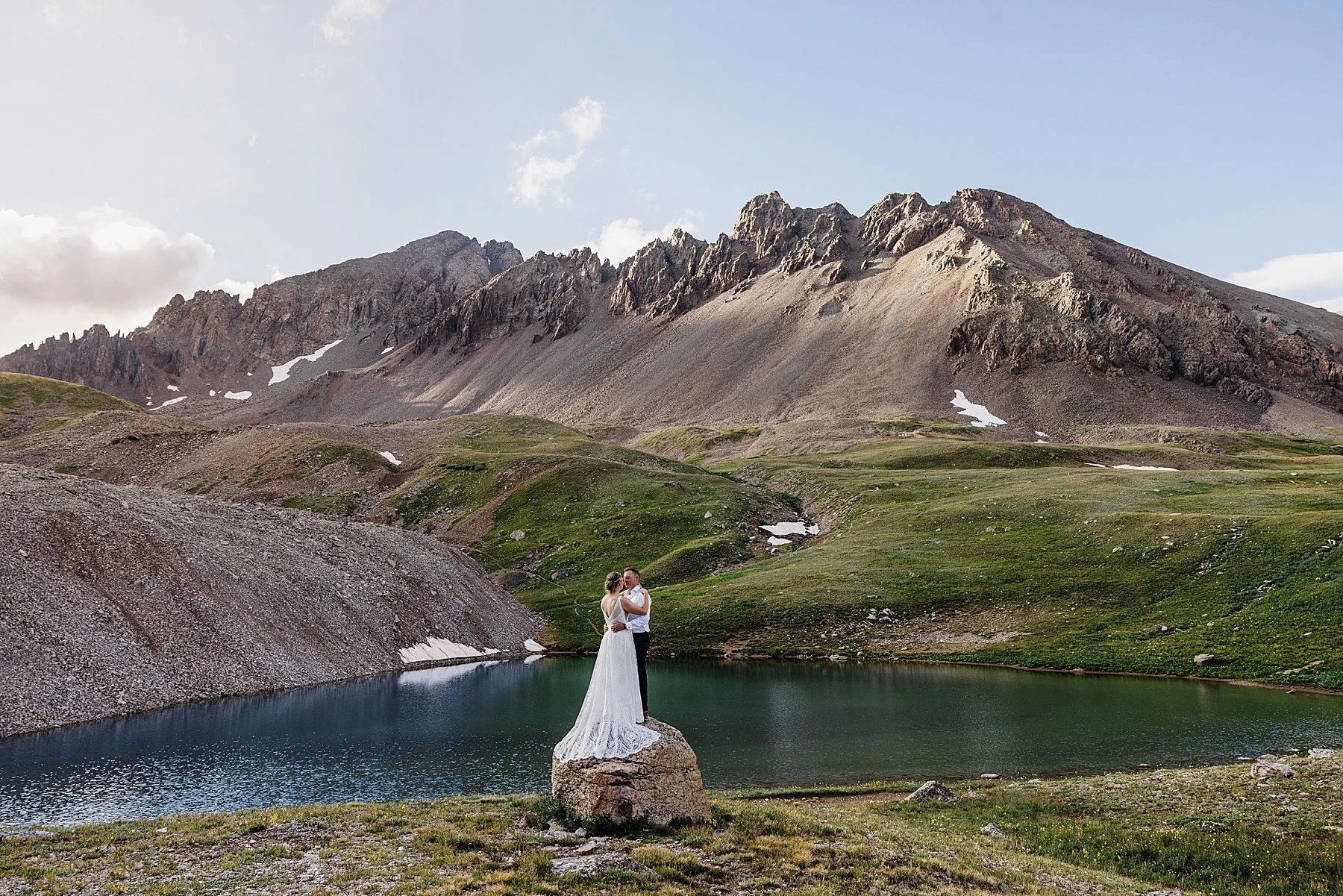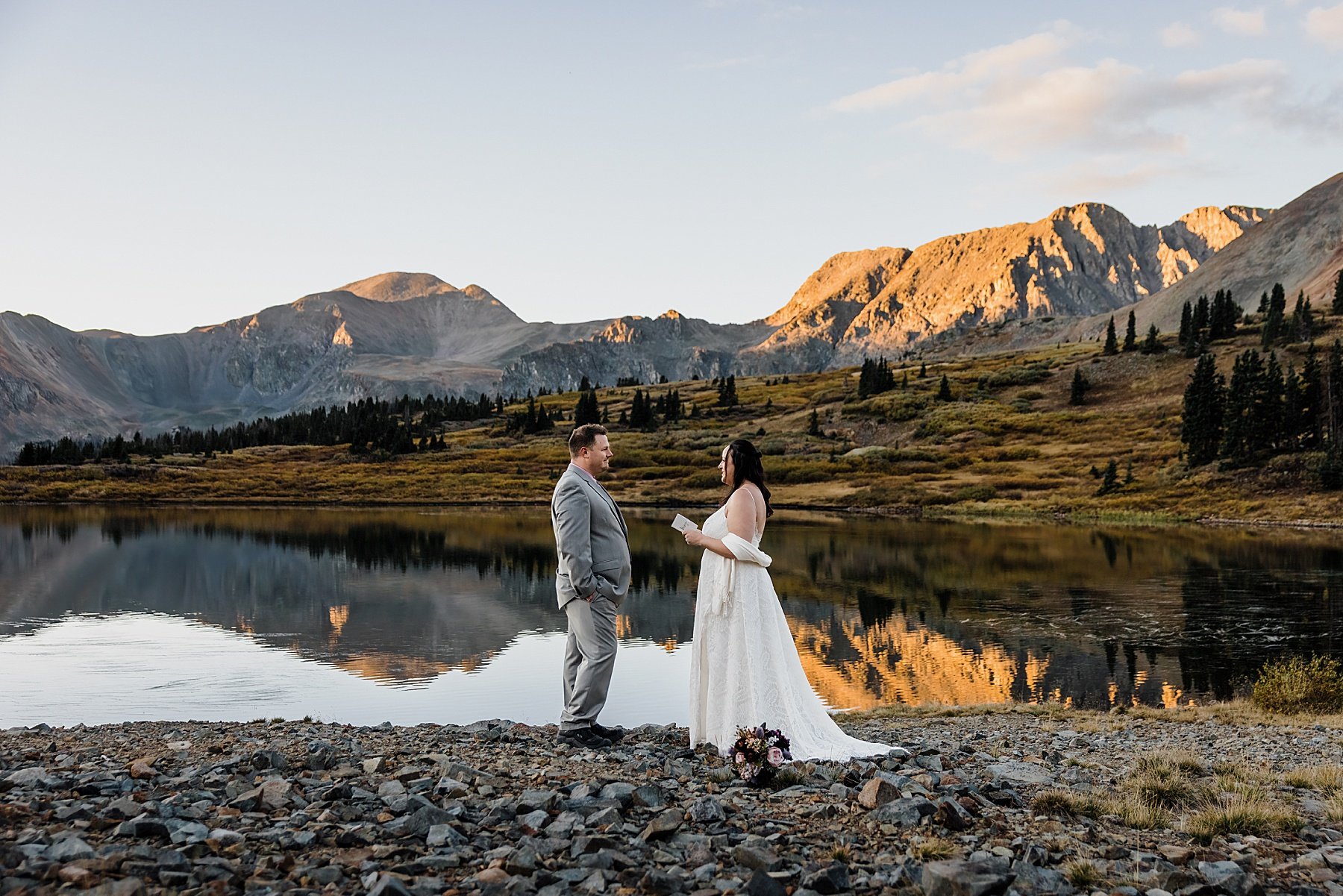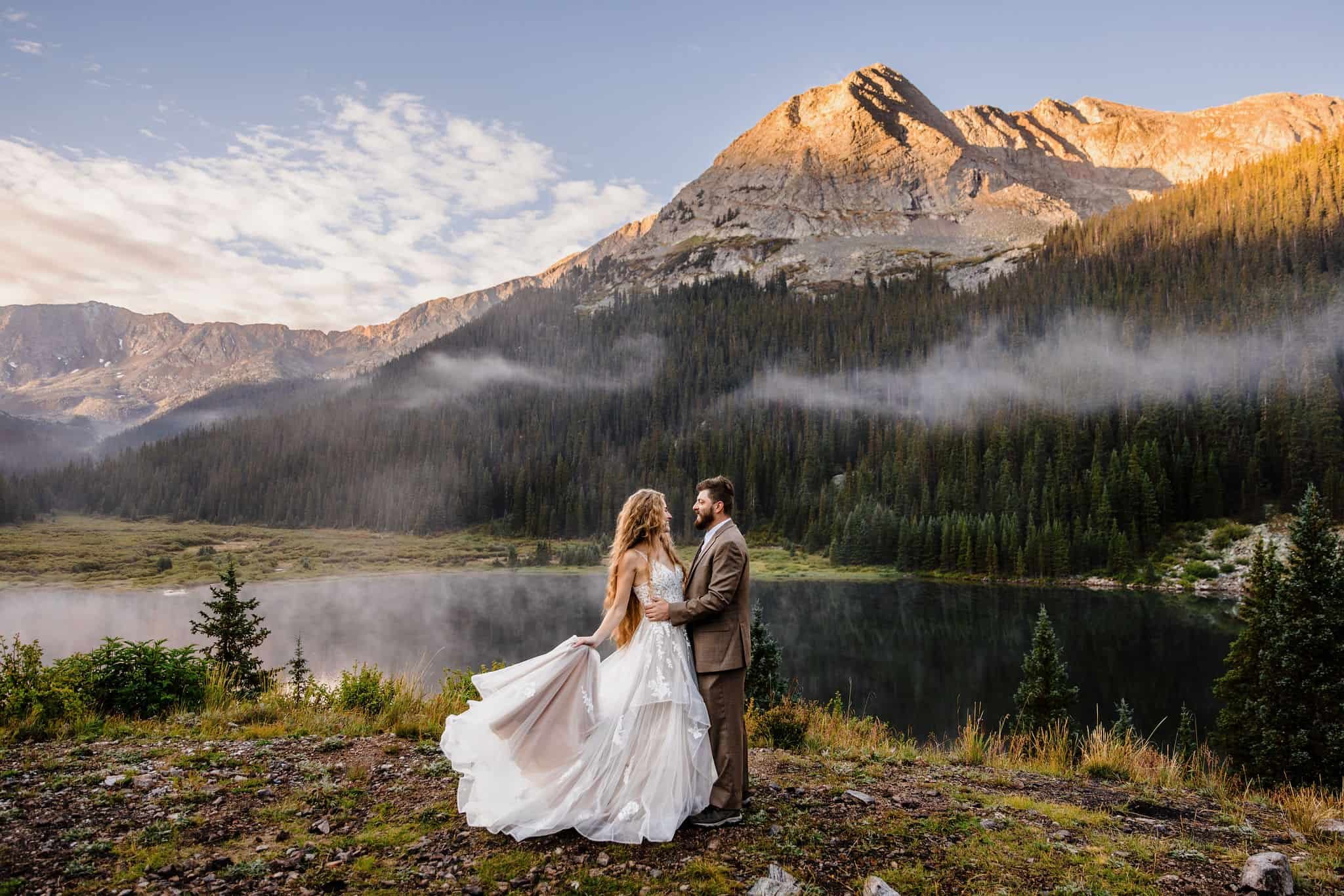How To Have An Off Road Elopement
Updated January 18th, 2025
Off Road Elopements
There’s a common misconception that in order to get to the most beautiful views, you need to hike 8 miles. This couldn’t be further from the truth! While many of our couples still choose to go for a hike on their elopement day, more and more are considering alternative means of transportation. Off roading is a great way to get further into the backcountry in a less strenuous and time consuming way.
What’s in this off road elopement guide:
The Basics of an Off Road Elopement
• What is off roading?
• What is an off road elopement?
• Who should consider an off road elopement?
• Is off road driving experience necessary?
• What kind of vehicle is needed?
The Best Places to have an Off Road Elopement
Top 10 places for your off road elopement
How to Have a Safe Off Road Elopement
• Important off road trail terminology
• Important off road trail etiquette
• What to bring to your off road elopement
• Safety tips
• The best time of year for an off road elopement in Colorado
• The best off road elopement locations in Colorado
• Things to consider when planning your elopement
The Basics of an Off Road Elopement
What is off roading?
Off roading refers to driving a vehicle on unpaved surfaces. Depending on the region, this could be surfaces such as dirt, rock, sand, mud, riverbeds, or even snow. These roads can range in difficulty from small bumps in a country road to white-knuckle rock climbs. We find that most off road trails we visit most frequently fall somewhere in the middle. Enough of a challenge to make it fun, but not enough to be too stressful.
What is an off road elopement?
In short, it’s any elopement day where we travel to the couple’s locations by off road trail. Sometimes there may be some hiking as well, but most of the journey can often be done via off road trail.
Off road elopements are unique in that they allow us to easily venture deeper into nature and avoid crowds.
What are the benefits of having an off road elopement?
Get off the beaten path (literally) - We always tell our couples that the best way to find privacy on their elopement day is to go where the crowds won’t. The casual visitor may not consider or even know about the existence of off road trails. This will majorly cut down on the crowds you have to share your space with.
In addition to fewer crowds, off road trails often lead deep into the wilderness and can give you the feeling of truly being surrounded by and immersed in nature.
Spend less time and energy hiking - Not everyone has the desire or ability to hike to remote locations on their wedding day. Driving on off road trails is faster than hiking and can often lead to locations that are just as breathtakingly beautiful!
Easily visit multiple locations - Often, our off roading couples plan elopement days that are like mini road trips. We have the time to visit more than one location and even make short sightseeing stops along the way. Do you dream of exploring a waterfall, a forest, and a mountaintop all in one day? An off road elopement could be for you!
Give yourself a unique adventure - Many of our couples have never been off roading before. So the act of off roading itself can be a fun and exciting way to spend your elopement day!
Worry less about packing light - If you hike to your elopement location, you have to think hard about what you want to bring with you because everything needs to be carried on your back. But with an off road elopement, you don’t have to worry as much. Bring those extra shoes, bring your grandma’s picnic basket and that charcuterie board!
Who should consider an off road elopement?
Off road elopements are a great option for anyone who is up for a little bit of adventure in their elopement day! There is a huge range in difficulty off road trails, so we tailor our recommendations to each couple’s comfort level. We always say that the only requirement is a little bit of bravery and a little bit of trust in your vehicle.
Is off road driving experience required?
Nope! We never suggest trails that we don’t think a beginner in a capable vehicle can complete. For us, off roading is a fun way to get to otherwise hard to access locations. We’re not interested in rock crawling just to say we did.
Do you like the idea of an off road elopement but don’t want to do the driving yourself?
You can also hire a driver! Many locations where there is a culture of off roading (such as Sedona, Moab, or Telluride) have companies that will do the driving for you!
What kind of vehicle is needed for an off road elopement?
The exact vehicle you need will depend on the trail you choose. Some are passable in a normal SUV, while others require a purpose-built vehicle.
We would rather that our couples be over prepared for a trail rather than underprepared. Often, we suggest that our couples rent a Jeep Wrangler for their off road elopement. These are built specifically to handle the kinds of trails we visit the most, and can be rented through a variety of companies. For trails that are rockier or require water crossings, we may even suggest renting a Jeep Wrangler Rubicon with specific setups and off road tires, which can be rented from specialized Jeep rental companies.
If you have your own vehicle, here are some things to consider when deciding if it is the right fit for your off road trail:
Short Wheel base - While being competent on off road trails, trucks and other long vehicles may be more difficult to maneuver on tight turns. Vehicles with a shorter wheel base (such as a Jeep Rubicon) will be easier to turn in tight spaces.
Off Road Tires - Having off road tires will give you better traction on dirt and rock.
High Clearance - Having a vehicle with high enough clearance will make it safe and easy to drive over obstacles without scraping the underside of your vehicle and also allow for water crossings.
Low Gear - In addition to 4 Hi, some trails may require the use of 4 Lo. This is extremely helpful in steep, slick, and rocky sections.
How to Have a Safe Off Road Elopement
Important off road trail terminology
Knowing some of these most common off road terms will help guide you in choosing the right off road trails for you.
Shelf roads - These are roads with a cliff edge on one side. In many cases, these roads are very narrow and do not have guardrails.
On shelf roads, it is important to look ahead and be aware of oncoming traffic. If the road is particularly narrow, you may need to find a place with enough space for both vehicles to pass. During these moments, off road etiquette is very important.
Off camber - This is when one side of the road is higher than the other. This causes your vehicle to tilt to one side and requires careful tire placement.
Grade - The steepness of a trail. Areas with a particularly steep grade will require more power on the uphill and careful use of your brakes on the downhill. After a long section of steep downhill, you may want to consider pulling over in a safe place to let your brakes cool. Roads with a steep grade are also more dangerous during inclement weather.
Pinstriping - This is when a narrow section of trail is lined with overgrown trees and bushes. Because of this, there is a chance of scratching on the sides of your vehicle.
Road surface - The road surface will have a big impact on your experience on a off road trail. Common road surfaces you might encounter are dirt, rock, sand, mud, and even riverbeds. Dirt may be loose and dusty or even bumpy washboard. Rocks could require careful tire placement. And riverbeds with flowing water will require steady speed and knowledge of the depth.
Difficulty ratings - Many guides will assign ratings to trails, ranging from easy, to moderate, to difficult, to extreme. It is important to know that ratings are subjective, so it’s important to independently research locations to ensure your comfort level. We stick to easy and moderate trails with our couples.
Important off road trail etiquette
These guidelines will help ensure your safety as well as the safety of others on the trail.
Right of way - If you come across another vehicle coming toward you, the vehicle going uphill always has the right of way. On narrow roads, the vehicle going downhill should pull over so the uphill vehicle can safely pass through.
Yield to hikers, bikers, and horses - Be careful when passing non-motorized road users and be careful not to spray them with dust.
Drive slowly - Driving on off road trails is a much slower process than on a paved road. Driving slowly will allow you to carefully maneuver over obstacles and keep a careful eye out for other vehicles and people.
Keep your distance - Leave plenty of space between you and the vehicle in front of you. This will help keep you out of their dust cloud, but also gives them space to maneuver their vehicle.
Stay on trail - Never take a shortcut, pass another driver, or park off trail. This can cause significant damage to the vegetation, particularly in areas of alpine tundra or biological soil crusts.
Ensure the trail is open - Always check with the appropriate land management (such as National Forest or Bureau of Land Management) to ensure your trail is open before your trip. Driving on closed trails is not only illegal, but it can also be very dangerous.
Respect private property - Be aware of whose land you are on. Only camp and picnic in designated areas on public land.
Leave No Trace - Minimize your impact on the environment by following the 7 Principles of Leave No Trace. Click here to learn more about Leave No Trace.
What to bring to your off road elopement
When heading out into remote areas, we always recommending bringing the 10 Essentials. According to the National Park Service, the 10 Essentials are the basic first aid and emergency items that you should have with you when recreating in the outdoors.
Permits and Registrations - If you will be driving your own vehicle off road, some states (such as Colorado) require you to register your vehicle and have an OHV permit.
OHV Course - Some states (such as Utah) require you to take an off road education course before you can legally operate an OHV.
Navigation - Maps, compass, GPS system with offline capabilities
Satellite Communicator - We always have our Garmin inReach Mini 2 with us in case of emergency.
First Aid Supplies - First aid kit, don’t forget about first aid for your dog as well
Sun protection - Sunscreen, sunglasses
Insulation - Warm and waterproof jacket, gloves, thermals
Illumination - Headlamps with fresh batteries
Fire - Matches, lighter, fire starter
Food - Snacks as well as adequate meals
Water - Don’t forget to bring extra for your dog
Shelter - Blanket
Emergency Vehicle Gear - Fire extinguisher, tire repair kit, vehicle recovery kit, tire compressor
Safety tips for your off road elopement
Always check the weather before heading out.
Avoid off road trails in inclement weather such as rain or snow.
Always double check with the land manager that your chosen trail is open, don’t rely solely on trail reviews.
Be aware of how elevation affects your body and the weather.
Don’t always trust Google Maps. Not all off road trails are correctly mapped or mapped at all on Google Maps. Make sure you have an alternative method of navigation and do not rely on cell phone service.
The Best Places to Have an Off Road Elopement
You can have an off road elopement just about anywhere! We recommend starting your search by brainstorming what kinds of views you love the most and then starting your research from there!
Our Top 10 Places to Elope Off Road
Colorado - We’re biased, but we think Colorado is the best place to have your off road elopement. In Colorado, you can explore high mountain passes, alpine lakes, and maybe even waterfalls.
Utah - From Moab to Zion National Park, there are so many incredible places for exploring red rocks, canyons, or even sand dunes.
Arizona - Explore the red rock formations of Arizona in popular elopement locations such as Sedona.
Washington - While the off road trails in Washington might not completely get rid of your need for a hike, they can still get you to some beautiful mountain locations.
California - From mountains to desert, California has a little bit of everything.
Alaska - Explore the remote mountains of the northernmost state in the US.
Iceland - Book a Superjeep and explore the rugged and colorful highlands of Iceland.
Australia - Venture deep into the outback of central Australia or maybe even explore the rainforests of Tasmania.
New Zealand - Explore beautiful mountains, rainforests, and fjords.
Namibia - Hire a driver and explore the sand dunes of Namibia.
Off Road Elopements We’ve Captured
How to Have an Off Road Elopement in Colorado
If you ask us, Colorado is hands-down the best place to have an off road elopement! There are SO many trails to choose from of all difficulty levels, and it’s gorgeous here! Some of our favorite locations in the entire state can only be accessed by off road trail, so it’s not even possible to hike in (unless you want to hike for a very long time). Off roading not only opens you up to unique locations, but it also adds a lot of adventure to your elopement day!
The best time of year for an off road elopement
This is the first thing we discuss with our couples who are considering off roading on their elopement day. It is so important to choose a date that will give you safe and reliable access to the off road trails.
For mountainous regions in Colorado, we recommend only choosing an elopement date between late-July and early October.
Depending on the year, some high elevation trails may open by mid-June or even stay open through the end of October, but when it comes to your elopement day, we believe that being thoughtful with your date choice is the way to go. Choosing a date outside of our recommended late-July to early October puts you at a higher risk of road closures. This means that you will need to replan your entire elopement day in short notice. You likely chose to elope to avoid stress, and choosing a date in our “safe zone” will help alleviate some of the worry.
For areas of Colorado that receive less snowfall, such as Grand Junction, possible dates range from the beginning of May until the end of October.
The best places in Colorado for an off road elopement
The San Juan Mountains
This region of Colorado is our absolute favorite for off road elopements. The two largest towns (which are both still pretty small) are Telluride and Ouray. There is something for everyone in the San Juans, from giant aspen groves, to waterfalls, to alpine lakes, and mountaintop views where you can see for miles. This region becomes more and more popular among our couples each year and we can see why!
Crested Butte
If you’re looking to base yourself in an adorable mountain town, then look no further than Crested Butte (“CB” for short). While Crested Butte’s trail system isn’t as large as what you’ll find in the San Juan Mountains, there are still so many beautiful places to explore. From aspen groves to alpine lakes, you won’t be disappointed!
Other Colorado Mountain Areas
While the San Juan Mountains and Crested Butte are the most popular locations for off road elopements, there are hidden gems scattered all over Colorado! Some of our other favorite areas for off road trails include Aspen, Black Hawk, Breckenridge, Georgetown, Grand Junction, Leadville, Salida, and Steamboat Springs.
Things to consider when planning your off road elopement in Colorado
Understand the roads
In Colorado, you can expect off road trails that are rocky and steep. Many of our couples from out of state are surprised by the untamed nature of our trails. So while we won’t recommend locations that you can’t complete successfully, know that you might be in for a bit of a rollercoaster. But it’s more fun that way!
Think about the weather
Rain, snow, and even wind can make off road trails extremely dangerous. Always keep a close eye on the forecast to avoid any incoming weather that could affect your drive or your safety at high elevations, such as thunderstorms.
Bundle up, even in the summer. At high elevations, the cooler temperatures and the wind can make even a day in mid-July feel chilly. Always pack a warm, waterproof jacket and gloves.
Be aware of elevation sickness
As we get higher in elevation, not only do the temperatures decrease and the chance of inclement weather increase, you also need to be aware of elevation sickness. Be aware of how your body feels and don’t push yourself too far.
To avoid elevation sickness, consider spending a night or two in Denver to help your body gradually acclimate to the elevation change. Also be sure to get rest the night before your elopement, stay hydrated, and make sure to eat hearty meals.
Make an effort to avoid crowds
Off road trails are always better when no one else is around. The easiest way to avoid crowds on your elopement day is to elope on a weekday and go out at sunrise or stay out until sunset. Often, these times are the quietest because most people are still sleeping at sunrise and then most people have returned to town for dinner around sunset.
Interested in learning more about eloping in Colorado?
Check out our Colorado Elopement Guide
We’re Lisa + Alex
We're more than just elopement photographers and videographers, we're experience providers. You've chosen to have a small wedding because you want something different. And we’re here to help you bring your dream elopement to life.
If part of the reason you're eloping is to be able to pour your heart out to your partner without hundreds of people watching, we get it. We're introverts through and through, and we've never been the ones to stand out in a room full of people. But we really love love, belly laughs, deep conversations, and quiet moments of reflection.
We believe that your elopement day should be packed full of fun, emotion, and adventure while remembering to pause and really take things in.












